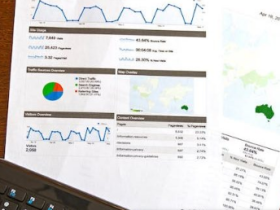Hyperglycaemia is a condition when the blood glucose level is greater than 125 mg/dL in fasting and greater than 189 mg/dL 2 hours after a meal. Simply put, when blood sugar levels go up in the blood, it is hyperglycaemia.
You might want to consult a Private GP in London immediately, if you are experiencing symptoms which are in relation to it.
A Brief Overview of Hyperglycaemia
The term ‘Hyperglycaemia’ is an expression to describe high blood sugar as defined by the World Health Organization (WHO). Patients develop such condition when their bodies are unable to produce enough insulin to process the glucose or there is an inefficiency in insulin utilization.
A great many factors can cause blood sugar level to increase. Stress, certain medications, excessive carbohydrate intake, an untreated infection, body’s reaction to certain unknown elements are to name a few.
Apart from that, overeating and a sedentary lifestyle are often the cause of blood sugar elevation in patients.
Factors responsible for this condition include reduced insulin secretion, increased glucose production, decreased glucose use, among others.
Raed More: 30 MINUTES OF EXERCISE CAN HELP RELIEVE SOME OF THE SYMPTOMS OF DEPRESSION
on symptom in diabetic patients. Below is the list of secondary factors that cause hyperglycaemia:
Endocrine disorders (such as Acromegaly, Cushing Syndrome, or Pheochromocytoma) causing peripheral insulin resistance
Gestational diabetes which occurs due to decreased insulin sensitivity in 4% of all pregnancies
Pancreas destruction due to chronic pancreatitis, pancreatic cancer, cystic fibrosis, hemochromatosis
Total parental nutrition & dextrose infusion
Administration of medications such as phenytoin, glucocorticoids, estrogens
Symptoms of Hyperglycaemia
Initially, you would find zero to no symptoms. However, as the situation gets worse, you will start experiencing the following symptoms:
- Increased thirst
- Sudden weight loss
- Tiredness
- Headaches
- Frequent urine discharge
- Recurrent infections
- Blurred vision
Patients with diabetes must keep tabs on their blood glucose levels to keep the condition in check.
Diagnosis
With the help of a continuous glucose monitoring system or a fingerstick, you can keep tab on the level of blood sugar at home. You may also use a glucose meter to check the glucose levels at home. Monitoring at home can help notice any harmful factors contributing to the disease and check the same with a physician.
When you take a visit to the nearest private GP clinic in London, you may undergo an A1C blood test. It helps healthcare providers find out the average blood sugar levels in the last few months.
Types of Diabetes Treatments
The test results may vary depending on the age & underlying medical conditions of the patient.
There is this over the counter ketone level test kit available, which helps determine the presence of DKA.
Treatment
If you have been experiencing symptoms of hyperglycaemia, there is a high chance you have diabetes. Dealing with diabetes is not something you should find worrisome. To lead a healthy life, all you need to do is to follow your physician’s advice and remain under regular checkup.
Below are the steps you can take at home:
Monitoring blood sugar level: Patients with diabetes should keep track of their blood sugar levels as suggested by doctors.
Daily exercise: Moderate physical activity on a daily basis can help use excess glucose. It also causes fats to burn and seed up ketoacidosis.
Dietary habits: Changes in diets and food habits along with regular carbohydrate monitoring helps keep the glucose level in control.
Stress management: Blood sugar level may go up due to stress. Patients should find effective ways to manage stress, prioritize sleep, perform yoga and more.
Medication: Your private GP Clinic in London may recommend changing the types or timings of certain medications, especially if the blood sugar level remains elevated for a long time.
Also Read: How to do Unmani Mudra and its benefits
Hyperglycaemia with Diabetes
It is common for most people to experience an increase in blood sugar after eating a large meal rich in carbohydrates. Those who experience consistent symptoms of hyperglycaemia may have low or inefficiently used insulin problems. This can be a result of diabetes.
Two types of diabetes include Type I diabetes and Type II diabetes. The former occurs when the body is unable to produce insulin on its own, while the latter is associated with ineffective use of insulin.
Please note: Insulin is a naturally occurring element, which allows cells to use glucose for energy generation and normal functioning. When this element is low or inefficiently used in the body, diabetes develops.
Patients with Type II diabetes are prone to experience low levels of insulin. However, there might be some exceptions.
When to Seek Urgent Medical Attention?
You might need to take a tour of emergency room when symptoms keep surfacing. The symptoms may include but not limited to:
- Feeling sick
- Abdominal pain
- Blood sugar levels not responding to home treatment
- Difficulty staying awake
- Rapid breathing
- Dehydration, rapid heartbeat
- Stroke
- Symptoms suggesting Diabetic Ketoacidosis (DKA)
How to Prepare for an Appointment?
You may want to schedule an appointment with your private GP clinic in London if the blood sugar level does not remain under control. Make sure you are well-prepared before showing up on the scheduled date.
Following is the information to help you get an overview of what to expect from your doctor:
You may need to stop eating or drinking a few hours prior to the appointment. This is because your doctor may test your blood sugar. So, it’s wise to ask for any such restrictions before booking an appointment.
Jot down the list of medications you are currently using before you go for the appointment.
Make a list of personal information that may affect your treatment.
Brainstorm all the possible questions you may want to ask your doctor regarding diabetes management at home.
To Conclude
Hyperglycaemia is a top indicator of diabetes, which can be serious if left untreated. You must report any abnormal symptoms to your best private GP in London as soon as possible. Also, make sure you monitor the levels of glucose regularly at home to keep yourself from an unforeseen situation you could avoid easily.








Leave a Reply